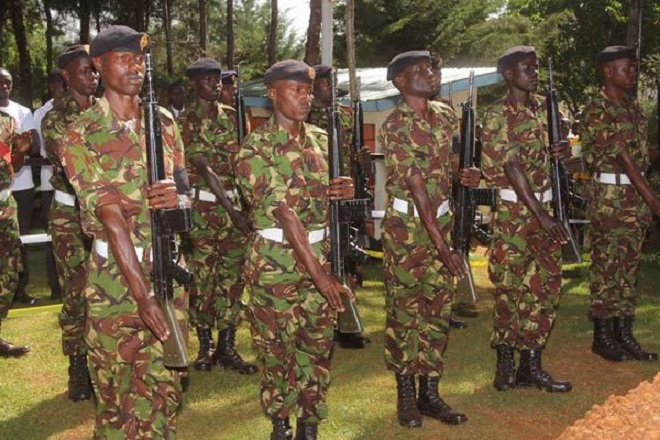
Sunday, May 22, 2016

Kenya may withdraw its troops from Somalia if the international community does not plug funding gaps for the operation, President Uhuru Kenyatta has warned.
At a meeting with envoys from the UN Security Council on Friday, the President told the diplomats that funding cuts to the African Union Mission in Somalia (Amisom) will not be filled by participating countries.
“As one of Amisom’s major troop contributing countries, Kenya is questioning whether it was worth the huge cost. [President] Kenyatta asserted that Amisom was not getting the support it needed in terms of resources and equipment, and argued that the UN needed to take on a much greater role,” the UN Security Council Report, an online bulletin by the Council stated on Friday.
“Referring to the recent cuts in EU support, he said it was not Kenya’s role to close the funding gap and the logical conclusion would be for Kenya to pull out its troops.”
The President also defended the Kenya Defence Forces from accusations by a team of UN investigators that they were engaging in illegal activities.
“Kenyatta also raised the issue of accusations against Kenyan troops being involved in trafficking of charcoal and other goods in Somalia, saying that if people did not appreciate what they were doing, there was no reason for them to stay.”
The diplomats from the UN’s most powerful body met President Kenyatta to discuss the planned repatriation of Somali refugees, regional security and Somalia stabilisation plan.
President Kenyatta was concerned that the world was looking the other way despite Kenya, and other Amisom members sending troops to Somalia.
As part of Amisom, Kenya has 3,664 troops in Sector 2 of the Mission, which is under the African Union, but is technically a UN mission. Kenyan troops are in lower and middle Juba.
Much of the funding has been coming from the European Union. But in January, the EU cut its budget to Amisom by 20 per cent. This means that the European body gives €20 million (Sh224 million) every month up to June.
The money is used to pay stipends to soldiers at $1,028 (Sh103, 828) a month with no other allowances.
REFUGEE RESETTLEMENT
For a KDF soldier, the government then deducts an administration fee of $200 (Sh20,200), meaning every serviceman gets $828 (Sh83,628). But Amisom requires $300 million for its entire military and logistics.
“[President] Kenyatta asked the Council to seriously consider Amisom’s role and whether the mission had the resources to stabilise Somalia,” the report states.
The diplomats from the 15-member Council asked Kenya to rescind the decision to close Dadaab refugee camp, offering instead that the UN holds further discussions on refugee management in the country.
The camp holds 335,000 refugees, mainly Somalis.
“It was stressed that the main issue was not funding, but the presence of terrorist groups in the camps and how to deal with this threat,” the envoys were told when they met later with Interior PS Karanja Kibicho, Foreign Affairs PS Monica Juma and Chief of Defence Forces General Samson Mwathethe at Harambee House.
“There were sections in the Dadaab camp where humanitarians could not enter, and the fundamental issue was therefore how to protect refugees from being appropriated by terrorists.”
Kenya is talking to the Jubaland administration in Somalia over the possible resettlement of refugees.
A parliamentary team is expected in Somalia this week to see if regional administrations would be ready to receive returning refugees.”